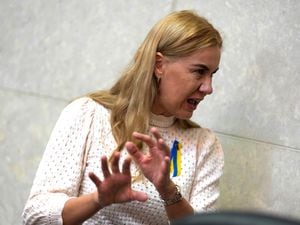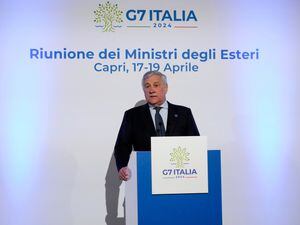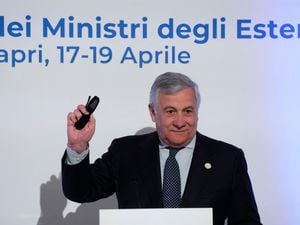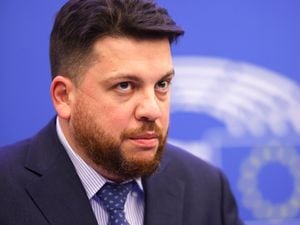EU set to adopt windfall levy on fuel profits, but no deal yet on gas price cap
The bloc is seeking to raise £128 billion to help people and businesses hit by the crunch.

European Union energy ministers are set to adopt a package of measures including a windfall levy on profits by fossil fuel companies, although a deal on capping gas prices remains off the table.
With energy prices soaring across Europe since the Russian invasion of Ukraine, EU member countries have been negotiating proposals from the European Commission that the bloc’s executive arm said could help raise 140 billion dollars (£128 billion) to help people and businesses hit by the crunch.
Several diplomats who spoke ahead of Friday’s meeting expressed confidence a deal will be approved over a levy on surplus profits made in 2022 by companies producing or refining oil, gas and coal.
Under the deal, these companies will be asked to give back a share of their profits above the average of the past four years, according to officials at France’s energy ministry.
The two other main elements of the plan are a temporary cap on the revenues of low-cost electricity generators such as wind, solar and nuclear companies, as well as an obligation for the 27 EU countries to reduce electricity consumption during peak price hours.
The measures, however, will not have an immediate effect on the gas prices that have been running wild as Russia reduced its supplies.
Czech industry and trade minister Jozef Sikela, who chaired the meeting in Brussels, said: “This is just the first part of the puzzle and an immediate patch.”
He added: “We must not stop here, we are in an energy war with Russia, the winter is coming. We need to act now… Now means now. Now is not in a week and definitely not in a month.”
A group of 15 member countries has urged the European Commission – the EU’s executive arm – to propose a cap on the price of wholesale gas as soon as possible to help households and businesses struggling to make ends meet.
They said: “The price cap that has been requested since the beginning by an ever increasing number of member states is the one measure that will help every member state to mitigate the inflationary pressure, manage expectations and provide a framework in case of potential supply disruptions, and limit the extra profits in the sector.”
The proposal will be discussed during Friday’s meeting but has yet to gather unanimous support. Notably, Germany is seeking to block the move.
The European Commission has warned in an analysis that such a cap could weaken the bloc’s ability to secure gas supplies on the global market.
But it is open to the idea of introducing a price cap on Russian gas to mitigate the impact of the crisis while negotiating a lower gas price with other suppliers.
Kadri Simson, the EU commissioner for energy, said: “We are negotiating with our reliable suppliers of pipeline gas. If this doesn’t bring results, then a price cap is possible. Russia is not a reliable partner. In fact, it is at the origin of the problem.
“I strongly believe we need a price cap on all Russian gas imports, at a level that still makes it attractive for them to export to Europe.”
According to the European Commission, Russian gas supplies to the EU declined by 37% between January and August this year.
Meanwhile, inflation in the European countries using the euro has broken into double digits as prices for energy soar
Consumer prices in the 19-country eurozone hit a record 10% in September, up from 9.1% in August, EU statistics agency Eurostat reported. Only a year ago the figure was as low as 3.4%.
Price increases are at their highest level since record-keeping for the euro started in 1997.





